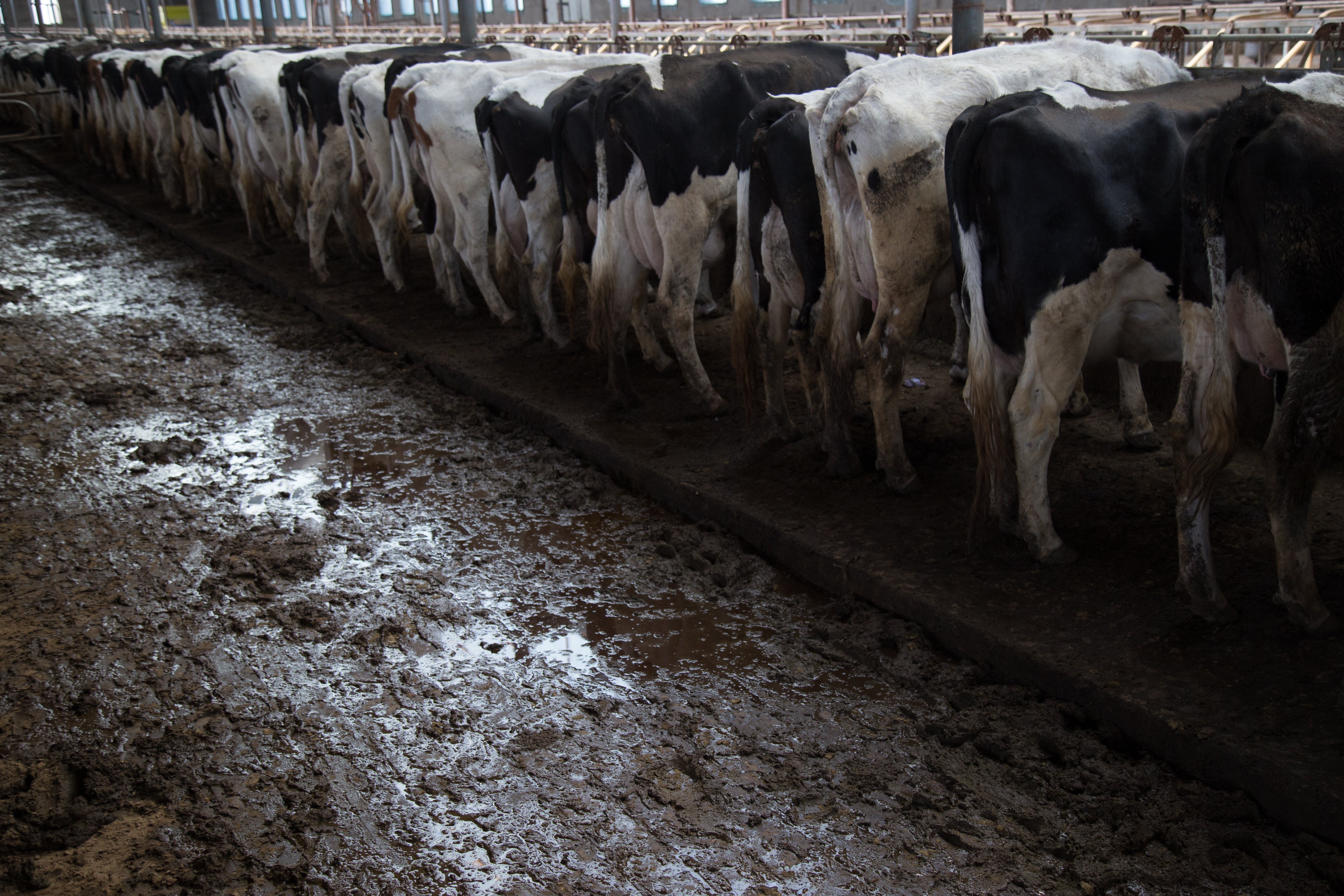Scientists want to turn one greenhouse gas into another to fight climate change

A free daily email with the biggest news stories of the day – and the best features from TheWeek.com
You are now subscribed
Your newsletter sign-up was successful
A group of scientists from Stanford University have proposed a rather unconventional plan to fight climate change.
Their research, published on Monday in Nature Sustainability, concluded that converting methane into carbon dioxide could actually help reduce the warming of the Earth. Methane and carbon dioxide are both so-called "greenhouse gases" — in fact, carbon dioxide is largely responsible for the climate predicament we find ourselves in, the Los Angeles Times explained. But as it turns out, more carbon dioxide might not be as disastrous as we think.
Methane traps much more heat than carbon dioxide, "on a molecule-for-molecule basis." So by converting much of our atmospheric methane into carbon dioxide, we could dramatically reduce the impact of climate change. This process would eliminate about one-sixth of human-caused global warming, while only adding a few months' worth of carbon dioxide to the atmosphere, researchers found.
The Week
Escape your echo chamber. Get the facts behind the news, plus analysis from multiple perspectives.

Sign up for The Week's Free Newsletters
From our morning news briefing to a weekly Good News Newsletter, get the best of The Week delivered directly to your inbox.
From our morning news briefing to a weekly Good News Newsletter, get the best of The Week delivered directly to your inbox.
Of course, the best case scenario would be to stop greenhouse gas emissions entirely, as many scientists have been saying for years. But since that hasn't been a very popular plan, this could be the next best thing. Converting methane into carbon dioxide "would not be a deal-breaker," said Rob Jackson, the study's lead author.
Further research will be required in order to determine whether this plan would be realistic to achieve, but the study's authors are "cautiously optimistic." Learn more at the Los Angeles Times.
A free daily email with the biggest news stories of the day – and the best features from TheWeek.com
Shivani is the editorial assistant at TheWeek.com and has previously written for StreetEasy and Mic.com. A graduate of the physics and journalism departments at NYU, Shivani currently lives in Brooklyn and spends free time cooking, watching TV, and taking too many selfies.
-
 6 of the world’s most accessible destinations
6 of the world’s most accessible destinationsThe Week Recommends Experience all of Berlin, Singapore and Sydney
-
 How the FCC’s ‘equal time’ rule works
How the FCC’s ‘equal time’ rule worksIn the Spotlight The law is at the heart of the Colbert-CBS conflict
-
 What is the endgame in the DHS shutdown?
What is the endgame in the DHS shutdown?Today’s Big Question Democrats want to rein in ICE’s immigration crackdown
-
 The plan to wall off the ‘Doomsday’ glacier
The plan to wall off the ‘Doomsday’ glacierUnder the Radar Massive barrier could ‘slow the rate of ice loss’ from Thwaites Glacier, whose total collapse would have devastating consequences
-
 Can the UK take any more rain?
Can the UK take any more rain?Today’s Big Question An Atlantic jet stream is ‘stuck’ over British skies, leading to ‘biblical’ downpours and more than 40 consecutive days of rain in some areas
-
 As temperatures rise, US incomes fall
As temperatures rise, US incomes fallUnder the radar Elevated temperatures are capable of affecting the entire economy
-
 The world is entering an ‘era of water bankruptcy’
The world is entering an ‘era of water bankruptcy’The explainer Water might soon be more valuable than gold
-
 Climate change could lead to a reptile ‘sexpocalypse’
Climate change could lead to a reptile ‘sexpocalypse’Under the radar The gender gap has hit the animal kingdom
-
 The former largest iceberg is turning blue. It’s a bad sign.
The former largest iceberg is turning blue. It’s a bad sign.Under the radar It is quickly melting away
-
 How drones detected a deadly threat to Arctic whales
How drones detected a deadly threat to Arctic whalesUnder the radar Monitoring the sea in the air
-
 ‘Jumping genes’: how polar bears are rewiring their DNA to survive the warming Arctic
‘Jumping genes’: how polar bears are rewiring their DNA to survive the warming ArcticUnder the radar The species is adapting to warmer temperatures